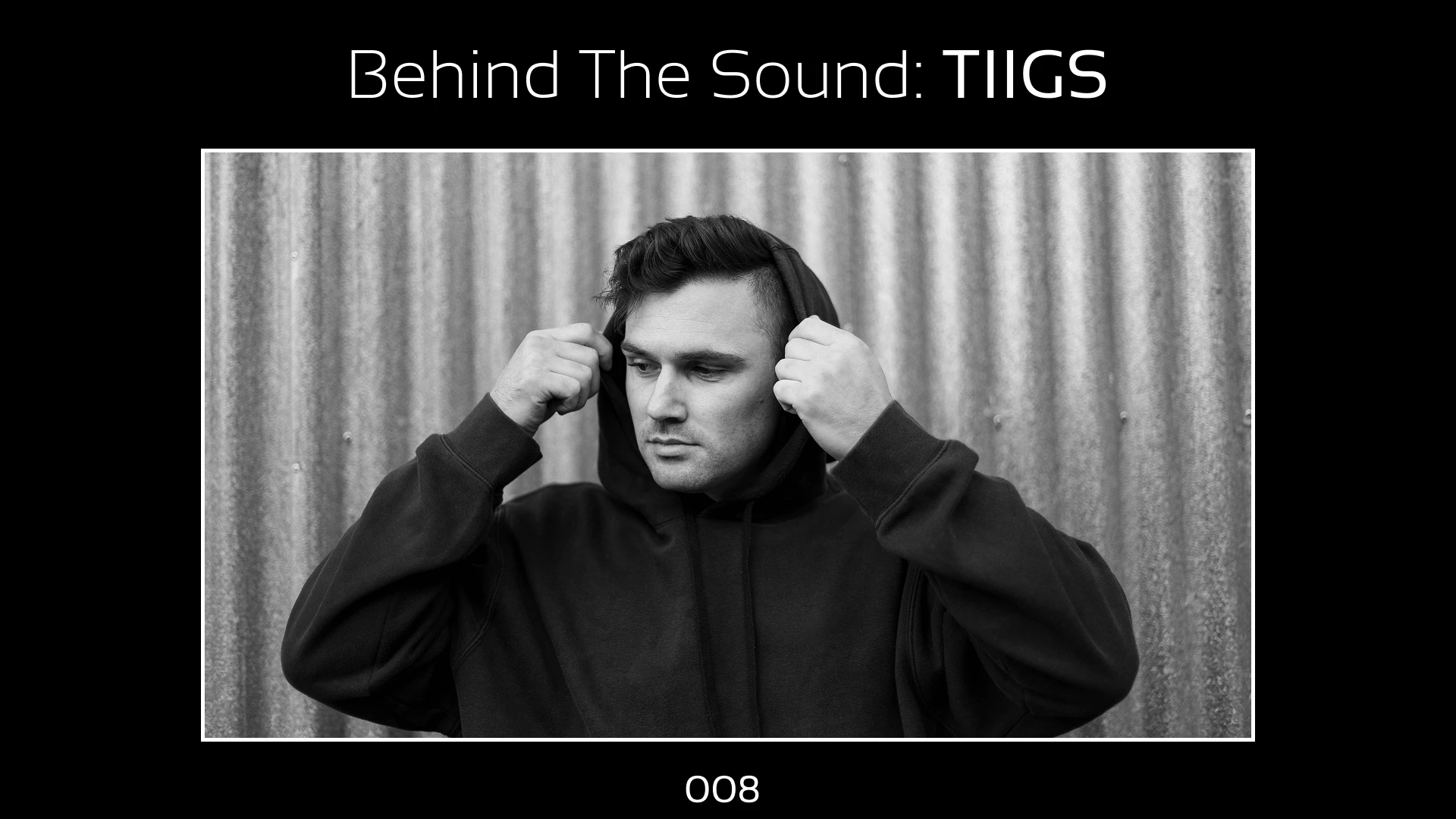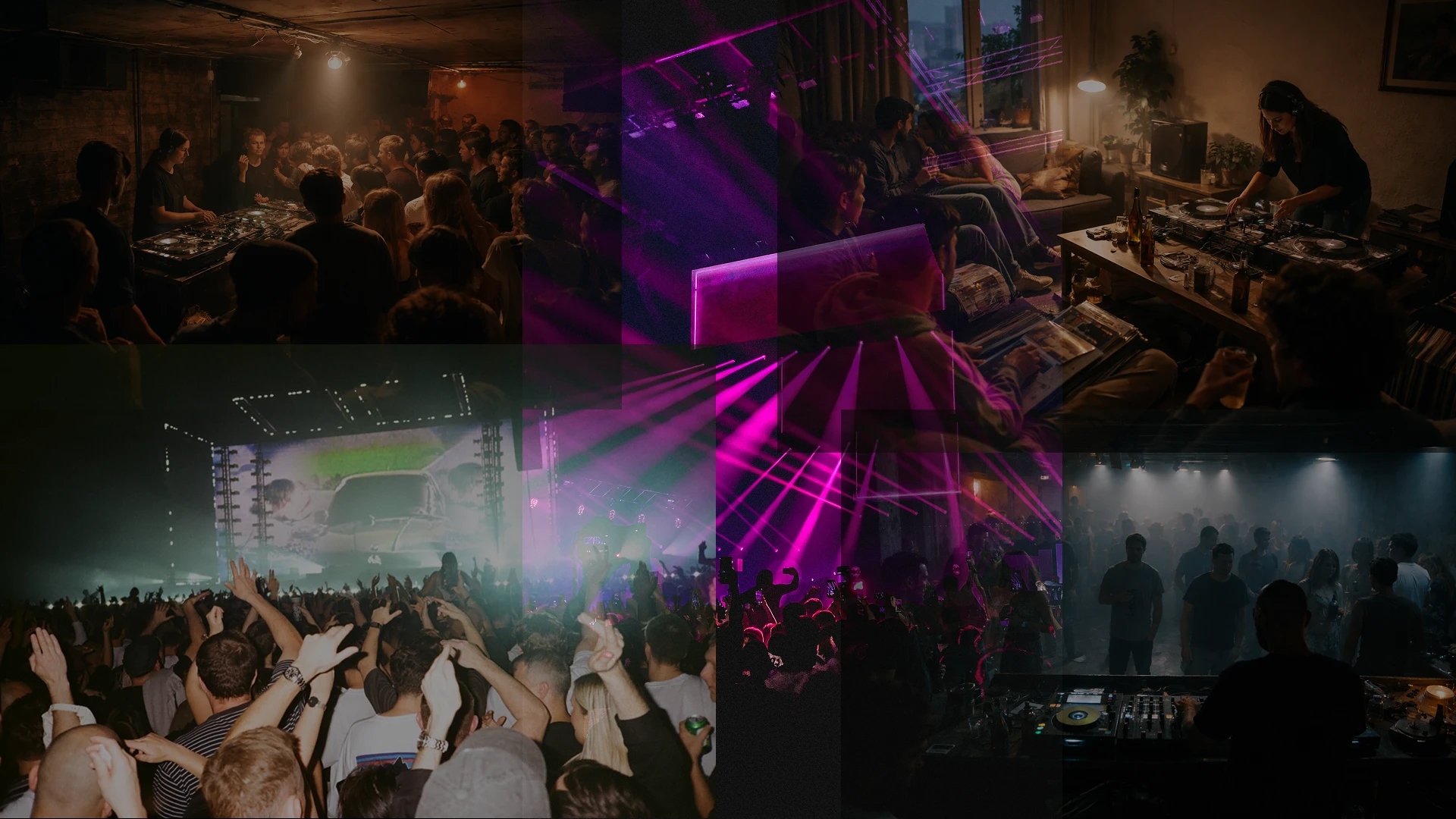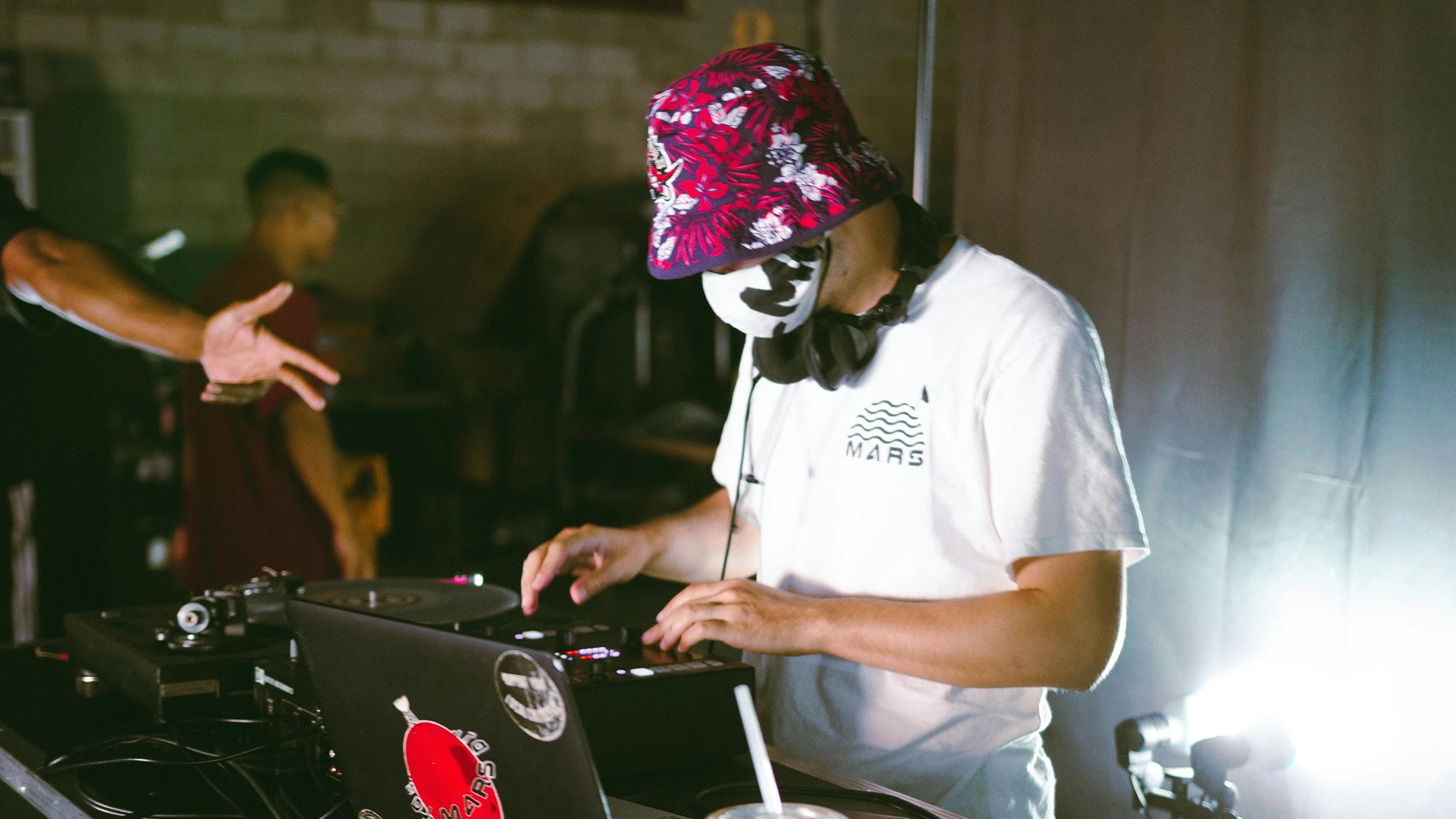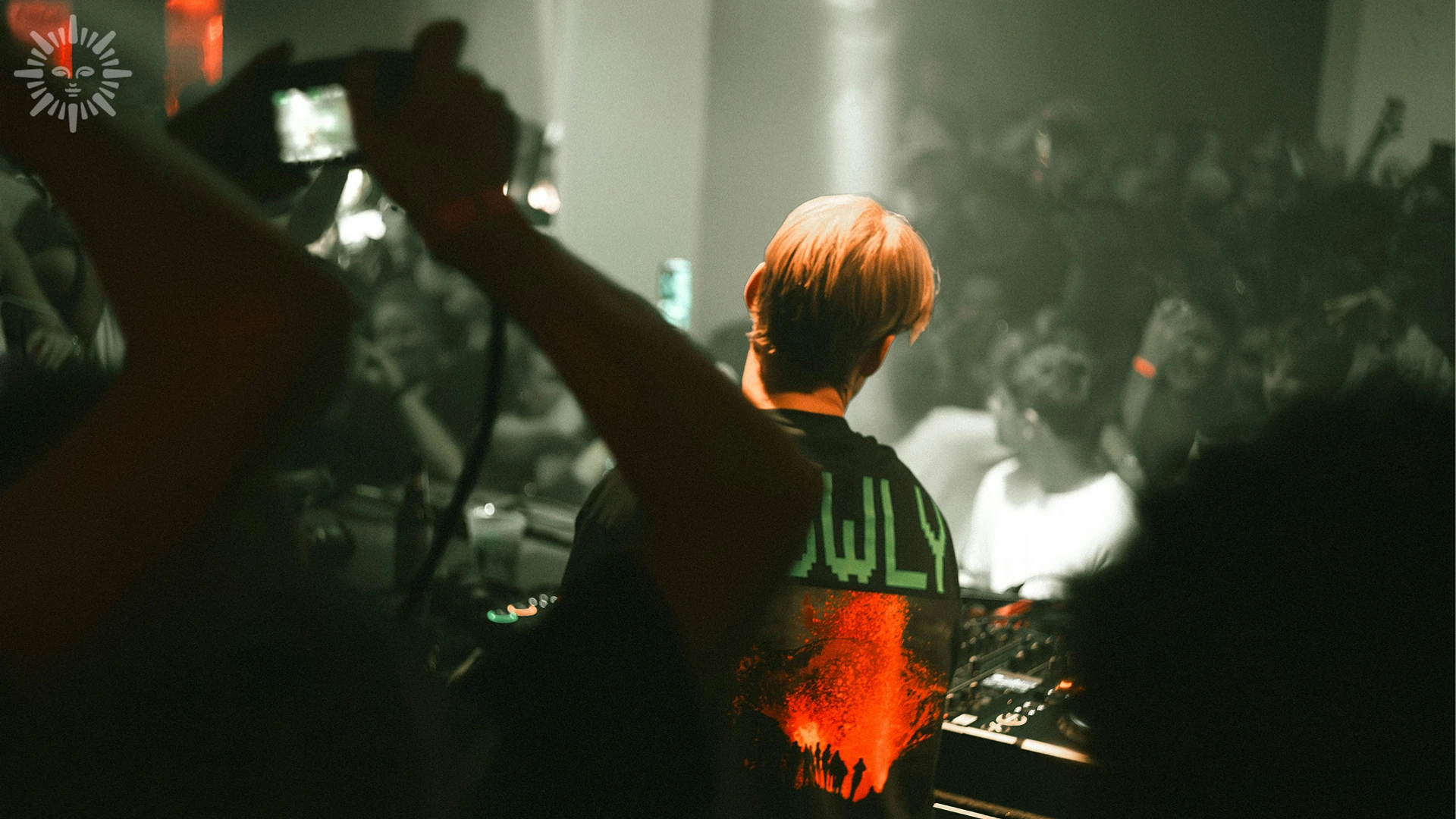Behind The Sound: TIIGS
We chat with TIIGS about his journey through Drum & Bass, moving from New Zealand to the UK, and the creative process behind his productions.
13 minutes read
We chatted with emerging Drum & Bass producer TIIGS, who has recently moved to the UK from New Zealand. His energetic blend of dancefloor and jump-up is fast earning him a reputation as one to watch. Since debuting with “Echoes” in 2019, he’s been carving out a sound defined by precision, melody, and power - now taking his craft to new heights after relocating to the UK. In this interview, we talk about his journey, production techniques, the evolution of his sound, and how he’s finding inspiration in a new scene and country.
Journey & Identity
What first drew you into Drum & Bass, and when did you realise you wanted to pursue it seriously?
I first started getting into Drum & Bass around 2019 when it was really starting to take off in New Zealand - the first track that really got me hooked was “Desire” by Sub Focus and Dimension. I had grown up writing music and recording it in Logic Pro for fun, so I already had some exposure in that regard.
Naturally as Drum & Bass piqued my interest I started trying to produce that as well. I am the kind of person that never really does anything in half measures so it wasn’t long before I was having a serious crack at it. I think there were about 6 months or so where I was obsessed over soaking up as much knowledge as I could on how to produce, and practically all my spare time was devoted to it. This culminated in me releasing “Echoes” roughly 6 months after I began my journey producing Drum & Bass.
Working with mates, bouncing ideas between each other and getting their feedback on tracks has helped get my production to where it is today.
- TIIGS
What motivated your decision to move to the UK from New Zealand, and how has the transition influenced you personally and musically?
I had always talked about living in the UK just to experience living overseas, and since I was born there returning back was an easy jump without the requirement for a visa. Initially I had wanted to go over to pursue my music there but in the end it was more personal and lifestyle factors that motivated me to make the move.
It is too early to say how it has affected me personally as I have only been in the UK for a couple months but musically I’ve definitely broadened my horizons having attended multigenre festivals there, I’ve been inspired by a new range of music so you never know, there might be some new genre crossovers from me in the future. It is definitely an exciting time for me nonetheless.
What factors do you think have shaped your identity as an artist most so far?
I think my identity as an artist has been mostly shaped by the close friends I’ve made in the scene and the collaborations I’ve done. Working with mates, bouncing ideas between each other and getting their feedback on tracks has helped get my production to where it is today, and I think a lot of my sound has been influenced by the results of working with them. Part of that also includes the shows I’ve played alongside these mates as well - we sort of became known as a collective and helped each other boost our profile.
Sound & Evolution
Looking back at your early releases like “Echoes”, how do you think your sound has evolved since then?
My sound has always been heavily influenced by what I am listening to at the time, “Echoes” being very reminiscent of the artists that first got me into Drum & Bass - a lot of dancefloor and melodic stuff from the likes of Sub Focus, Wilkinson, Dimension, Culture Shock etc. As a first record I look back and am pretty happy with how it sounded given how fresh I was and how little I knew about producing back then.
For a few releases after that I think I overcomplicated things a lot trying to be tricky and didn’t quite achieve the same cohesiveness as that first one. My sound is always evolving and I don’t think I’ve solidified my unique “signature sound” just yet but at its core is the blend of Dancefloor and Jump-Up that I have become known for recently. It’s what I like to listen to myself so naturally that finds its way into my own productions.
I think a key part of being a producer is continuing to experiment and move with the times whilst somehow staying true to your musical identity.
- TIIGS
How do you balance staying true to your sound with continuing to experiment and evolve as a producer?
I think a key part of being a producer is continuing to experiment and move with the times whilst somehow staying true to your musical identity. If you find something that works I think you have to keep building on that so you aren’t just rinsing and repeating the same thing over and over.
Every now and then I will release something a bit more experimental and different from my usual sound but still incorporating my classic fx/pads/atmospheres so in some way it is still true tomy sound - “All Of Me” is a good example of this. Often the sound design I did in those experimental tracks will make its way into what I consider my more core releases further down the line. I see it as sort of expanding my sound and not just sticking to the same style in every song.
Who or what has had the biggest influence on the way your music sounds today?
If I was to pick one artist that has had the biggest influence on my music I’d have to say Kanine. I think his blend of melodic and heavy is a major inspiration in my production and the way I DJ. Other big influences in the dancefloor space are Sub Focus, Dimension & Subsonic, especially with their sound design and the driving 8th note bassline that is prominent in a lot of their songs. When it comes to my jump-up tracks i’d have to say Tsuki, Phibes & Bou have had the biggest influence there.
Technical & Creative Process
Are there any specific tools, plugins, or production techniques you feel are central to your sound?
Central to my sound at the moment are the 8th note dancefloor basslines I previously mentioned, which are prominent in most of my upcoming releases. There are a multitude of techniques I use to achieve this sound but two key ones are:
Using a bus channel with no output as the sidechain trigger, to which I send certain drums, wubs, hits etc,
Shortening and accentuating certain notes in the 8th note pattern via the piano roll and synth LFO to create a bouncy rhythm.
These techniques give these basses more character and variation to keep the track engaging, rather than have a flat sounding 8th note bass powering through the whole track (which I am guilty of in the past).
A few plugins that I frequently use are “Disperser” by Kilohearts, for unique bass sound design; “Trash 2” by Izotope, which has been discontinued but I still use for distortion in just about every track; “Trackspacer” by Wavesfactory, which is essential in my mixing process for sidechaining and carving space in a mix; and “ShaperBox 2” by Cable Guys, for designing the noise layers which feature frequently in my productions.
It’s an ongoing process, and as techniques and software evolve I am always learning.
- TIIGS
How do you approach sound design, do you start with an idea of what you want, or experiment until something clicks?
I generally always hear the sound I am after in my head first and then try to recreate it. There are definitely times when I accidentally create a new sound in the process but most of the time I am doing it with intention.
When I was first starting out I would browse through sound design tutorials looking for a sound that was similar to what I was after and then experiment with tweaking it until I was happy it was as close as I could get it. Now that I know a bit more about sound design and how synthesizers work I can set about sound designing from scratch. I think one of my greatest limitations as a producer is sound design as it can often be difficult to recreate the sounds I am after which can lead to projects being drawn out for a long time trying to get that one bass or lead to sound right. It’s an ongoing process and as techniques and software evolves I am always learning.
Mixing Drum & Bass can be notoriously difficult. Do you have any go-to methods for getting that punch and clarity?
I am still growing a lot as a producer so I’m by no means an expert or anything close, but I can rattle off a few of the techniques that have helped me lately. Clarity is all about carving space in the mix so each element has its place and is serving a purpose. Over-cluttering a mix can leave it sounding muddy and crammed, but not having enough filler elements can leave it sounding empty and incomplete.
I think to strike a balance you have to add sounds with intent, not just randomly, and really break down areas that are lacking to determine what would best fill it (high or low frequency, background or forward in the mix). I mentioned it earlier but the plugin “Trackspacer” and dynamic EQ comes in handy to then carve space in the mix for your selected elements to shine through.
For me, punch boils down to sound selection, sidechaining and balance. To really dial in my low end towards the end of the mix I will add a low pass filter on the masterbus, usually between 100-200Hz, and then flick between my track and my reference tracks to compare and see where my mix is falling short. It is important to then bypass this filter to make the tweaks when comparing the tracks as a whole so you don’t overdo any changes.
Finally, mixing into a master chain has definitely also helped the end result of my tracks sound a lot better. Often if I did the mix and master separately I would get the mix to a point I am happy with and then after running it through the master chain it would sound nowhere near as clean and punchy. You are always going to lose some polish in mastering due to clipping/limiting but by setting my master chain early (usually after setting all my track levels) I can take the effects of this chain into account and mix accordingly, leaving no nasty surprises at the end.
To strike a balance you have to add sounds with intent, not just randomly, and really break down areas that are lacking to determine what would best fill it.
- TIIGS
Scene & Culture
How do you see the UK scene right now compared to New Zealand’s, are there big differences in energy, community, or sound?
I’ve only just moved to the UK in the last few months so I can’t really say too much but from the few gigs and festivals I have been too I was surprised at how much less mainstream Drum & Bass was compared to New Zealand. Don’t get me wrong, it still has a massive following for sure but I think I was expecting it to be everywhere over here, being the home of Drum & Bass after all. It definitely does feel like a tight community here though. One thing I have noticed here and in Europe is the amount of space you have in the crowd, no tightly packed moshpits like in NZ!
It is widely regarded as being a very warm and welcoming genre here (London)
- TIIGS
What has your experience of community been like within the UK Drum & Bass scene so far?
Like I said before, I’ve only been to a few gigs and festivals over here so far, but from what I’ve experienced everyone was very friendly and down to chat. I know it is widely regarded as being a very warm and welcoming genre here.
What role do you think streaming platforms and social media play for emerging Drum & Bass producers today?
I think we are well and truly in an era now where social media is crucial to success as an emerging artist. As frustrating as it can be sometimes, I think your presence online will help you cut through the pack quicker than the quality of your music as an upcoming artist. You could have the best music out there but if you aren’t promoting it and no one is hearing it then it will take you significantly longer to break through.
I guess the flipside of that is the prevalence of social media has made it much easier to be discovered and makes your music much more accessible to a wider audience. You no longer have to hand out physical mixtapes, try to sell records on the street or put up flyers everywhere - everything you need to promote yourself is right at your fingertips now. The same goes for streaming platforms; it’s unfortunate that they pay artists so little for their music but in the digital age most people are listening to and discovering new music via major streaming services, so if you aren’t utilising that then you are making it much more difficult for yourself to be discovered.
Social media is definitely something I have struggled with and is probably one of my weaker areas as an artist. I’ve always enjoyed producing and performing more than anything but it has been one of those things I've had to accept and learn to do as part of the job.
You could have the best music out there but if you aren’t promoting it and no one is hearing it then it will take you significantly longer to break through.
- TIIGS
Vision & Future
What can fans expect from you in the near future: new releases, collaborations, or events?
After having a bit of a 6 month hiatus to travel and move to the UK I have a lot of ground to make up, but my next few releases have already been signed which I believe is some of my best work to date - collaborating with a few old mates of mine. I’m really excited to see how these tracks perform as they have been building up a bit of momentum as dubs over the past 12 months. They really showcase how my production has matured and the “sound” that I am starting to settle into. I also have a few unreleased bootlegs on file which I’ll be looking to put out in between original releases to keep the momentum up as well.
Part of moving overseas involves building new connections of course, so it may take me a while to get back to regular bookings but I am looking forward to the new opportunities that may arise.
I think you know a producer has developed their own unique brand when people can identify their dubs just from how it sounds.
- TIIGS
Do you see your music fitting into a particular lane of Drum & Bass, or do you prefer to stay fluid and experiment across subgenres?
As I continue to develop my own sound I’d like to reach a point where people could hear my unreleased music and recognise my production, no matter what sub-genre it might be. I think you know a producer has developed their own unique brand when people can identify their dubs just from how it sounds.
For most of my music I'd see it growing within the dancefloor and jump-up space that it is currently in now - but there will be the odd experimental track thrown in there for sure, maybe even going into new genres entirely.
What’s one dream milestone you’d love to reach as TIIGS, whether that’s a label, a booking, or a collaboration?
One milestone I’m yet to tick off is to get a big festival booking, could be anywhere in the world. It is more of a long term goal as it may take me a while to get there, especially now that I am living in a new country but I think it is a good one to work towards.
---
A huge thank you to TIIGS for taking the time to chat with us. From his early beginnings in New Zealand to his fresh start in the UK, his story reflects dedication, growth, and an unwavering passion for Drum & Bass.
Stay connected with TIIGS and keep an eye out for his upcoming releases.
↳ Spotify | Instagram | YouTube | SoundCloud | Facebook | Bandcamp



